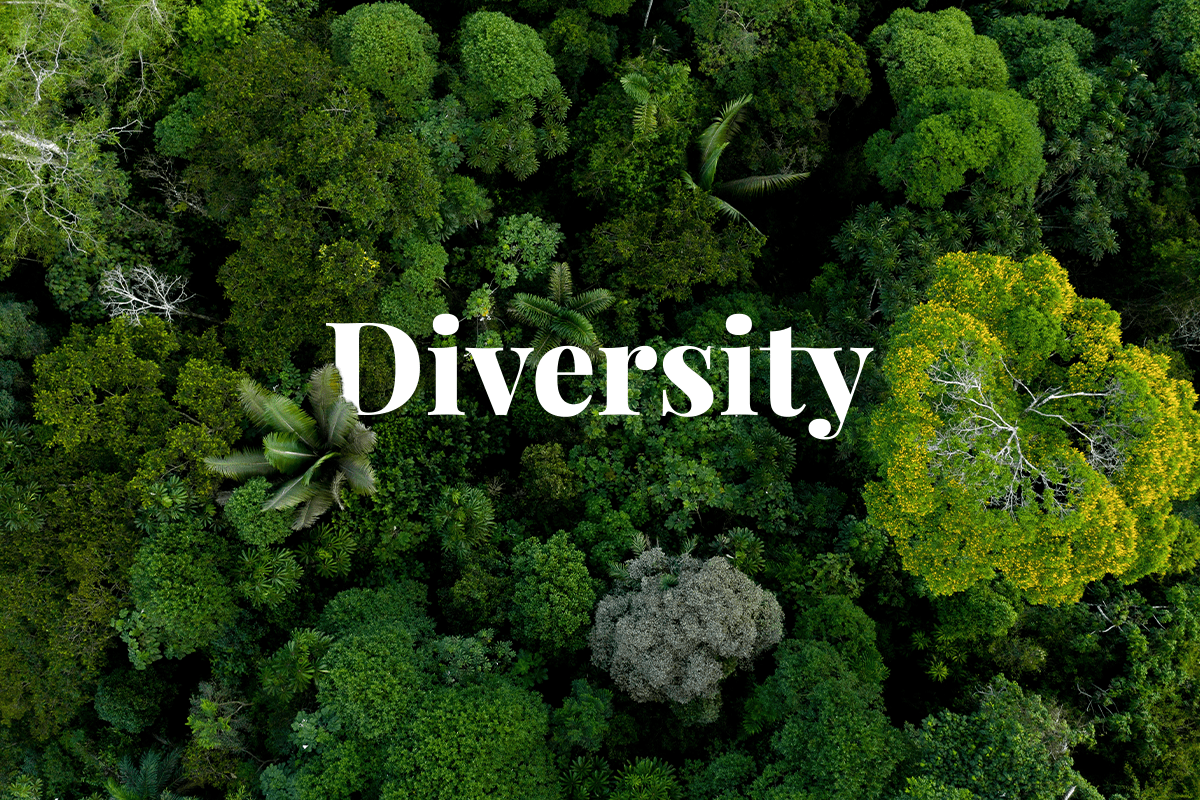A recent study conducted in Canada's National Forest Inventory reveals that maintaining diverse forests leads to increased carbon and nitrogen accumulation in the soil, which sustains soil fertility and advances climate resilience.
 View from above of the diverse Amazon forest.
View from above of the diverse Amazon forest.
Published in the journal Nature, the study is the first to demonstrate the positive relationship between tree diversity and soil carbon and nitrogen levels in natural forests. Researchers used structural equation modelling to assess these relationships by analysing data from numerous plots. The results indicate that higher tree diversity contributes to a 30% to 32% increase in soil carbon storage and a 42% to 50% increase in nitrogen storage over a decade.
Start planting trees today with DGB
Xinli Chen, the lead author of the study and a postdoctoral fellow at the University of Alberta, emphasised the significant benefits of tree diversity in soil carbon and nitrogen storage. This not only enhances productivity but also aids in reducing soil degradation. The study reinforces the importance of biodiversity conservation in forests and provides guidance for efforts to utilise forests for carbon and nitrogen sequestration.
To calculate changes in soil carbon and nitrogen storage, the researchers compared data from two National Forest Inventory sample-plot censuses conducted between 2000–2006 and 2008–2017. They measured tree diversity based on species richness, species evenness, and functional diversity, including traits such as leaf nitrogen content and tree height.
The study's findings validate previous biodiversity manipulation experiments and highlight the role of diverse tree species in acquiring and storing biomass, both above and below the ground. Canada's National Forest Inventory, covering a significant portion of the country's landmass, served as the basis for this research, analysing samples from 361 plots.
The study highlights that forests play a crucial role in carbon sequestration, with forest soils storing at least three times more carbon than living plants. Additionally, nitrogen is an essential nutrient that supports carbon assimilation and plant growth in forest ecosystems. The global decline in plant diversity has led to the degradation of ecosystem functions, including soil functions.
Read more: Empowering Indigenous communities: New fund to enhance their role in carbon markets
The study's authors include researchers from various institutions, such as the University of New Brunswick, the University of Tokyo, Lakehead University, and the University of Alberta. The research received support from several organisations, including the Natural Sciences and Engineering Research Council of Canada, the Canada Foundation for Innovation, and the US National Science Foundation's Biological Integration Institutes.
At DGB Group, we firmly believe in the intrinsic power of nature and recognise the vital role that biodiversity plays in sustaining life on our planet. That's why we are fully committed to advancing biodiversity and reforestation efforts through our carbon projects. Our primary objective is to foster thriving and healthy ecosystems, and we collaborate closely with farmers, communities, landowners, and conservation organisations to transform this vision into reality.
Join us to save nature

